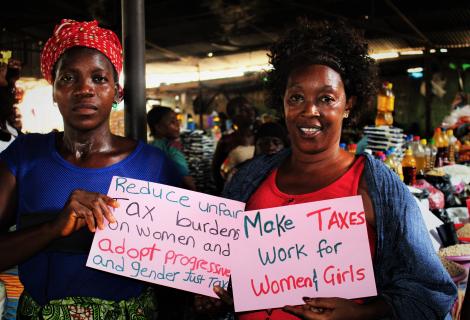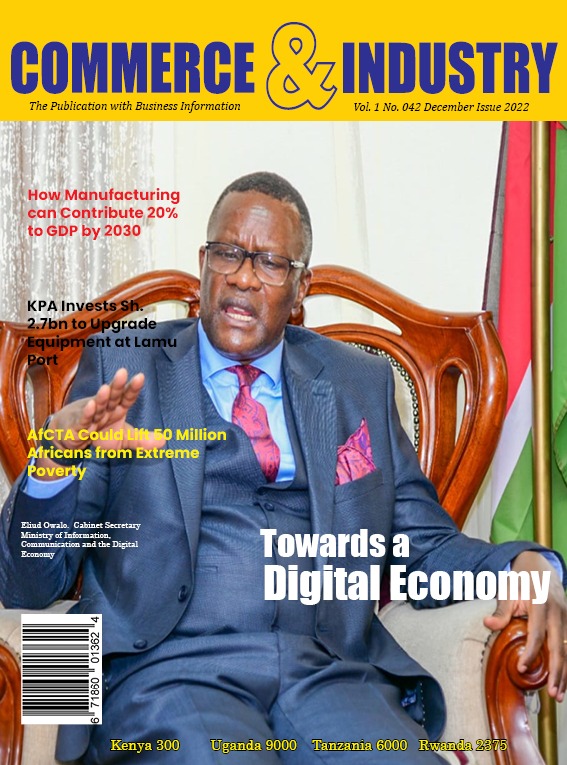
Equality can be taxing – How tax policy can give African women a fighting chance
- Tax policies, if well formulated and implemented, can go a long way in alleviating existing social and economic inequalities that heavily jeopardize women’s chances of getting ahead.

Control Practice at Cliffe Dekker Hofmeyr (CDH),
African women still grapple with deep-seated inequalities. Many of these issues stem from socio-economic structures that perpetuate poverty, limited access to education, and inadequate healthcare. As Partner in the Tax & Exchange Control Practice at leading law firm Cliffe Dekker Hofmeyr (CDH), Lena Onyango, points out, African women have faced both social and economic inequalities characterised by gross poverty, poor literacy, forced early marriages, Female Genital Mutilation (FGM), poor access to maternal healthcare, and limited access to female hygiene products.
“These issues, though products of societal and economic beliefs and policies, can be partially, if not fully, alleviated through the right tax policies,” says Lena.
The dual impact of tax policies
With a deep knowledge of African taxation, Lena says existing tax policies across African nations have a mixed impact on women. She notes that some progressive measures have been beneficial. Countries like Kenya and South Africa have implemented tax exemptions on essential goods like basic foodstuffs and sanitary products – making them more affordable and accessible. Additionally, she says progressive PAYE rates that are lower for low-income earners, who are predominantly women, provide some financial relief.
However, Lena warns that not all tax policies are equally beneficial. “Some African countries still implement regressive tax policies, including the imposition of VAT on basic commodities used by women.”
For instance, Kenya’s Finance Bill 2024 intended to impose VAT on ordinary bread and introduce an eco-levy on sanitary pads, among other tax measures. This would have resulted in a heavy financial burden on women and is part of the reason the country rejected this bill in protest.
Designing tax relief for women
These challenges can be overcome. In particular, Lena advocates for more targeted tax relief measures that directly benefit women, and especially those women who come from low-income households.
“Lower tax rates should be applied for low-income earners, and basic necessities like food, menstrual products, and childcare supplies should be exempted from tax or zero-rated. This would ease the cost of living for women, particularly those in poverty,” she suggests.
Although there is no specific tax relief programme exclusively targeting women, Lena points to successful initiatives like Kenya’s Voluntary Tax Disclosure Programme (VDTP) and tax amnesty as examples of how tax relief can benefit both men and women.
“These programmes were beneficial not just to the Kenya Revenue Authority but to the taxpayers as well. It has saved taxpayers, including women, from having to account for both unpaid taxes and accrued interest,” she explains.
Bridging the gender pay gap through tax reform
Lena believes tax policy reform can also significantly address the gender pay gap in Africa. “Tax policies should be formulated with the unique circumstances facing African women in mind, including higher illiteracy levels, poverty, and poor access to maternal healthcare and hygiene products.”
To encourage equity in pay, Lena says tax credits could be provided to companies that demonstrate compliance with equal pay laws and offer facilities like a crèche or breastfeeding room. “This would encourage businesses to implement policies that support women and regularly audit their systems to address any gender-based wage disparities,” she explains.
Increasing women’s participation in the workforce
Progressive tax systems that offer relief to low-income earners, coupled with sufficient social benefits, are essential to increasing women’s participation in the workforce. “The adoption of progressive tax systems that apply a low marginal rate for low-income earners—who are mostly women—and the provision of sufficient relief for basic living costs are key to encouraging more women to enter and remain in the workforce,” says Lena.
Tax credits or deductions for childcare and education expenses could further support working women, although, as Lena notes, “this is an area that most African countries are yet to advance in. In contrast, developed countries have programmes that support families with childcare and education, which significantly bolsters economic security.”
A call to policymakers
Lena urges African policymakers to embrace tax policy as a powerful tool for addressing gender inequality. “Tax policy-making processes should advocate for equal pay for women and enhance their ability to invest in and pursue entrepreneurship. Crucially, women should be involved in the tax policy-making process so that their circumstances are better understood and reflected in the laws and policies.”
Lena reiterates the importance of using tax policy as a lever for social change. “By prioritising the needs and challenges of women, we can take meaningful and tangible steps toward greater gender equality and economic prosperity for all. That’s what Africa needs,” she concludes.









